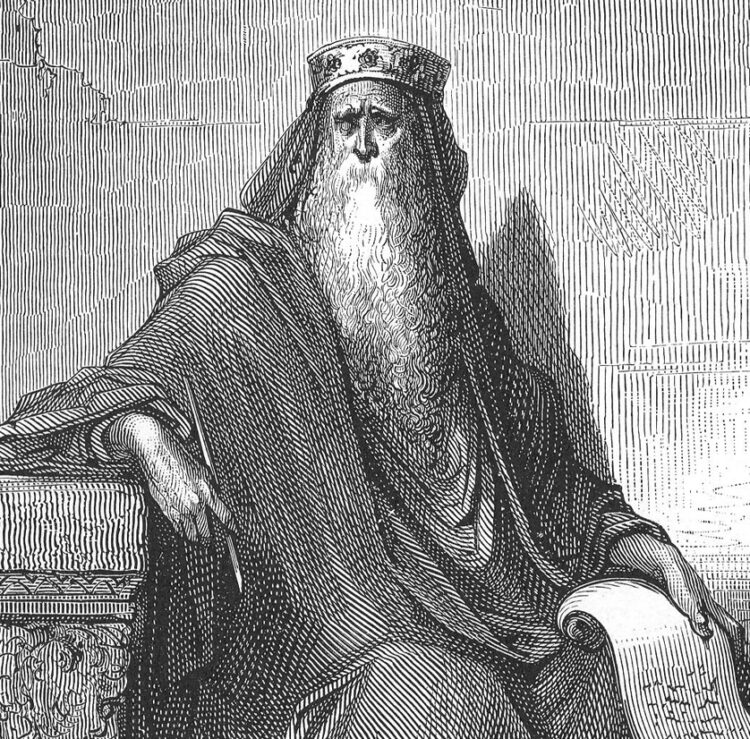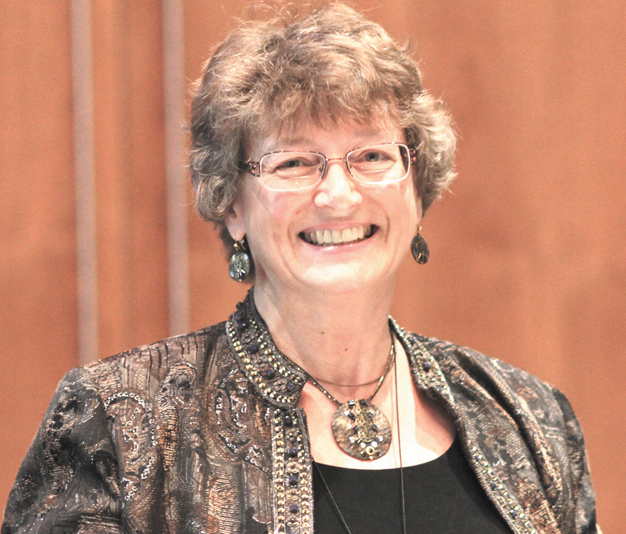A heritage of wisdom

Our Dual Heritage Series
Jewish Family Education with Candace R. Kwiatek, The Dayton Jewish Observer
My father-in-law, Jack Kwiatek of blessed memory, loved to go to estate sales. At one such event he came across a blackened collection of small fluted cups. Nearby was an equally dingy genie bottle. A longtime chemist, Jack had an inkling about what might lie beneath the grime. He wisely purchased the entire collection for a reasonable sum, and with a bit of polish and a lot of effort, it emerged: a hand-etched pure silver set of wine cups and a decanter that we now enjoy each Passover.
Ask a child or an elderly person what wisdom is, and you may get the identical answer, “to know a lot,” researcher Marianna Pogosyan recently discovered.
But knowledge alone, as in information and skills, does not equal wisdom. Nor is wisdom synonymous with intelligence, the ability to understand and apply what has been learned.
Blogger J.W. Barlament quips, “Jeopardy! contestants are knowledgeable. Astrophysicists are intelligent.” But wisdom — described as the intuitive understanding of connections between things, insight, or good judgment that leads to right action — is something altogether different.
Recent psychological studies in the U.S. and Canada have identified three types of wisdom: practical (Ben Franklin), philosophical (Socrates), and benevolent (Mother Theresa).
Researchers found that practical wisdom — insight into real-life issues and creativity in addressing them — resonated most strongly with North American study participants.
This should come as no surprise. From the time of the early colonists, Americans have been by necessity supremely practical, creative, and solution-oriented.
Until recently, their wisdom literature was the Bible, with its Ten Commandments for building a healthy society and proverbs about accruing knowledge, mastering discipline, and being industrious.
Stories about human fallibility, tyranny and liberty, and the Covenant at Sinai coupled with the Founders’ knowledge of history and governments inspired an innovative governmental design: a constitutional republic.
Popular wisdom appeared in Benjamin Franklin’s Poor Richard’s Almanack, including the familiar adages, “Never leave that till tomorrow which you can do today, ” and “Beware of little expenses: A small leak will sink a big ship.”
Jack’s estate sale adventure was an exercise in practical wisdom. Knowledge, experience, moral perspective, good sense, creativity, and practicality have been the hallmarks of American wisdom.

Long before modern psychological studies, the biblical text itself revealed a similar three-level hierarchy of wisdom, according to Canadian biblical scholar Robert Scott.
“At one level it is intelligence or shrewdness,” he writes. “At the next it is good sense, sound judgment, and moral understanding. A third level is the capacity to consider profounder problems of human life and destiny.”
American rabbi Kaufmann Kohler condensed this hierarchy into a single concept: “the mental grasp which observes and penetrates into the nature of things” and the artistic-like ability to masterfully act in response.
He points out that wisdom’s innate, intuitive, and creative nature suggests it is a Divine gift rather than a learned skill.
In the biblical stories of Joseph, Bezalel, and Solomon, as well as in Proverbs and Daniel, God is specifically identified as the source of wisdom.
So too in the Amidah, the central prayer of the Jewish liturgy, in which God is acknowledged as the source of wisdom and blessed as the grantor of wisdom.
If wisdom is a Divine gift, it can’t be taught. And it can’t be learned by imitating God — as we do when aspiring to God’s ethical qualities — since wisdom isn’t an ethical quality, not even one of God’s 13 attributes.
God’s wisdom is a creative quality, a tool used to fashion the universe, as the Psalmist writes, “How manifold are Your works, O Lord! In wisdom You have made them all (Psalm 104:24).”
Thus the gift of human wisdom can only be actualized by using it to know God’s Creation and thereby coming to know God and the very qualities we wish to emulate.
Proverbs 9:10 teaches, “The beginning of wisdom is fear/awe of the Lord,” but Jewish wisdom is a lifelong project, declares Rabbi Rami Shapiro.
Endless biblical verses suggest wisdom is acquired by the observation of nature and of history as well as through study and association with the wise. Pirke Avot adds, “Who is wise? He who learns from everyone (4:1).” And, one might add, from everything under the sun.
In his Knowledge Doubling Curve concept, 20th-century inventor and futurist Richard Buckminster Fuller noted that before the 1900s, human knowledge doubled approximately every century.
Ten years ago it was doubling every 13 months, and was predicted to soon double every 12 hours.
IBM reports that 90 percent of the information in the world today has been created in the last two years. We are bombarded by data, have access to more information, and have accumulated more knowledge than at any time in history. What we lack is wisdom.
“There’s no time or place in this digital age for introspection, learning from or listening to others, or understanding the lessons of the past,” observes conservative faith and foreign policy commentator Alan Dowd.
Worse, we’ve sidelined religion, jettisoned the wise elders, rewritten history, removed the pursuit of wisdom from institutions of higher learning, and removed the wisdom of objectivity from the media — all the institutions that inspired wisdom in the past.
“A culture that devours information while devaluing wisdom — a culture that disregards faith, history, and pillar institutions,” Dowd concludes, will eventually self-destruct.
Literature to share
Scatter, Adapt, and Remember: How Humans Will Survive a Mass Extinction by Annalee Newitz. An American journalist and author on culture, science, and technology, Annalee Newitz begins this work with a fascinating historical overview of how life has survived multiple mass extinctions to date. She then speculates on how today’s scientific breakthroughs — from cyanobacteria to space elevators and more — will ensure human survival in the next global disaster. This is not a survival manual, but an immensely interesting and eye-opening work of popular science.
Anya and the Dragon by Sofiya Pasternack. Newly named as a Sydney Taylor Award Honor Book winner, this charming adventure tale for middle grades is funny, warm, and woven throughout with intriguing Russian Jewish folklore and cultural traditions. While not an epic worldwide quest, it’s a quick-paced tale of friendship, courage, imagination, funny lines, and just plain fun.
To read the complete September 2020 Dayton Jewish Observer, click here.


